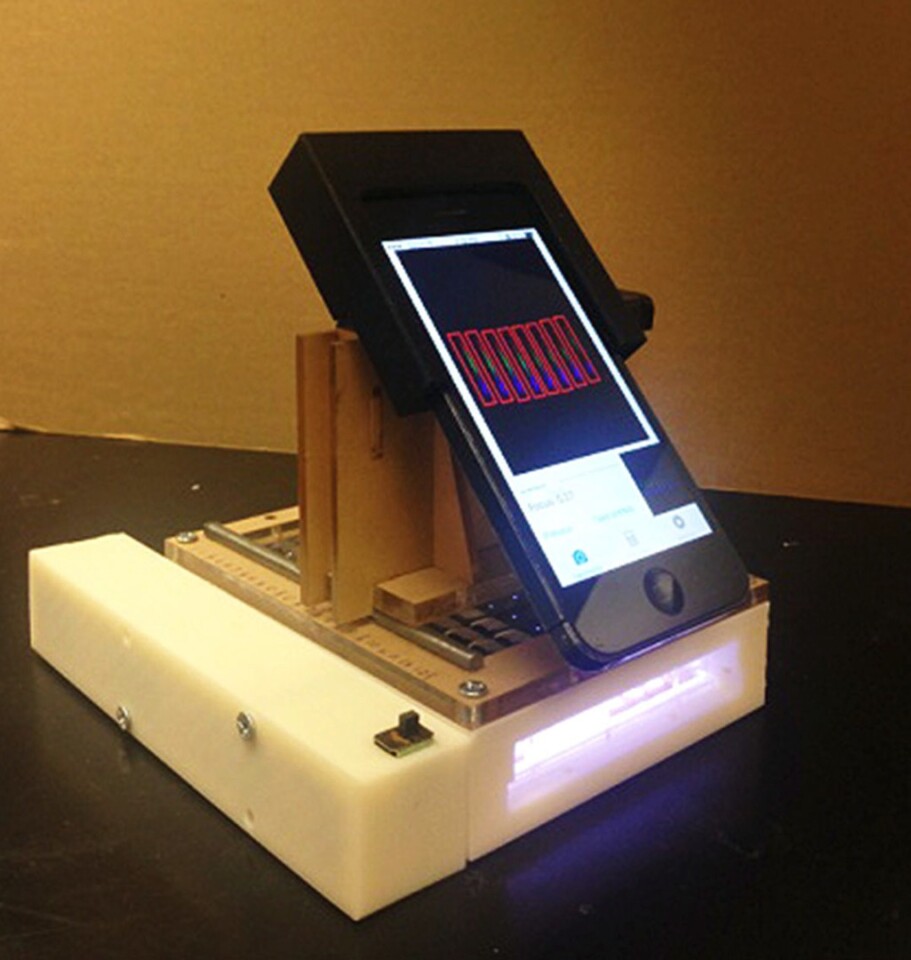The continuing miniaturization of electronic devices has allowed sensors previously confined to a laboratory to shrink down to a portable size, with previously bulky equipment now able to fit in a briefcase or even a needle. Now a team from Washington State University (WSU) has developed an inexpensive spectrometer that connects to a smartphone and can spot cancer biomarkers in several samples simultaneously, thereby taking lab-like accuracy out into the field.
While existing smartphone biosensors can only deal with one sample at a time, the WSU team's device can scan up to eight at once, measuring the light spectrum to detect traces of specific chemicals in a sample. In this case, the spectrometer is searching for the presence of human interleukin-6 (IL-6), which can act as a red flag for liver, lung, prostate, breast and epithelial cancers.

"With our eight channel spectrometer, we can put eight different samples to do the same test, or one sample in eight different wells to do eight different tests," says Lei Li, the leader of the team. "This increases our device's efficiency. The spectrometer would be especially useful in clinics and hospitals that have a large number of samples without on-site labs, or for doctors who practice abroad or in remote areas. They can't carry a whole lab with them. They need a portable and efficient device."
So far, the team has tested its smartphone spectrometer in the lab, and found that the device performs at around 99 percent accuracy. The next step is to test it out in the real world, and expand the range of compatible phones beyond the iPhone 5, which is currently the only one it works with.
The research was published in the journal Biosensors and Bioelectronics.
Source: Washington State University





